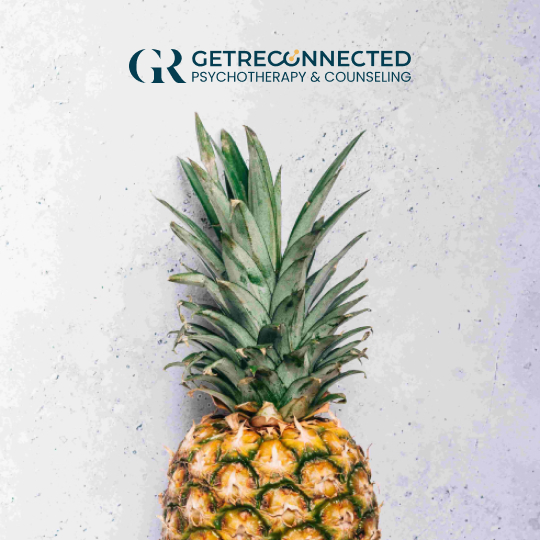For many, the desire to have a child is a fundamental aspect of their life. Having a child is a significant milestone for many men and women, and when couples are unable to conceive, they may feel unable to meet a desired goal.
The emotional turmoil of infertility can be overwhelming, from feelings of disappointment, grief, loss, anger, frustration, and pressure to conceive can strain relationships, further leading to feelings of isolation and disconnection.
The constant tango dance of hope and disappointment that come with each cycle of fertility treatment can be emotionally, physically and financially taxing.
Infertility is a topic that is often avoided in conversations, and it can be a challenging journey for couples. However, in recent years, there has been increased recognition of the prevalence of infertility and its impact. This is particularly true in Canada, where infertility rates have been on the rise. According to the Public Health Agency of Canada, approximately 1 in 6 Canadian couples experience infertility.
This article will cover the impact of infertility on mental health, the role of counseling, what to expect from fertility counseling, and finding the right therapist for you.
Table of Contents
ToggleInfertility can be a very emotional and stressful experience. The desire to have a child can be a deeply ingrained aspect of one’s identity and sense of self-worth and the inability to conceive can cause feelings of sadness, disappointment, and grief.
Infertility can have a profound impact on a person’s life. It can disrupt their previously held beliefs about themselves, their role in life, and their belief in a predictable world.
The emotional attachment to a dream child can be devastating, and the interruption of this attachment can lead to feelings of grief and mourning. The attachment to the unconceived or unborn child is often not shared by anyone else, and it can be a lonely and isolating experience.
The experience of infertility involves not just the loss of a potential child but also an amalgamation of other losses, such as the loss of relationships, health, status, self-esteem, self-confidence, and that of a dream.
The emotional toll of infertility can be exacerbated by factors such as the pressure to have children, societal expectations, and the physical and financial burden of fertility treatments.
Infertility is a life crisis. It is not surprising that it can lead to sadness, depression, and anxiety to some degree. Infertility can bring a sense of lost control over your life and life plans.
Mental health challenges, such as depression and anxiety, are common among individuals and couples struggling with infertility. Studies have shown that individuals and couples experiencing infertility have a higher risk of depression and anxiety compared to those who are not experiencing infertility.

Infertility can be a complex and emotionally challenging experience. Facing infertility can be an emotional rollercoaster, and the effects can be far-reaching: emotionally, socially, and physically. Some of the common impacts include:
- Anxiety (e.g., constant worrying thoughts)
Anxiety is a common challenge that can arise as a result of infertility. Individuals may engage in constant worrying about their ability to conceive, which can be distressing and interfere with their daily lives. They may become preoccupied with thoughts about infertility, which can lead to feeling overwhelmed and unable to focus on other things.
For example, fertility struggles may lead to constant worries about the outcome of a fertility treatment, such as whether they will be successful or not. They may also worry about the financial burden of fertility treatments and the impact it may have on their lives. These constant worrying thoughts can create a feeling of uncertainty and unpredictability, which can contribute to feelings of anxiety.
- Sadness or Depression
Sadness or depression is another common challenge that can arise as a result of infertility. The emotional toll of infertility can be significant, and individuals may experience feelings of sadness, hopelessness, and helplessness.
For example, an individual or couple may feel a sense of loss or grief for the child they hoped to have and the life they imagined for themselves. This can lead to feelings of sadness and disappointment.
- Physical manifestations of stress
The impact of infertility can also have a physiological effect on the body. These symptoms can include difficulty sleeping, muscle tension, headaches, and digestive troubles.
For example, difficulty sleeping can be caused by constant worrying thoughts about infertility and the inability to relax and wind down at night. This can lead to insomnia, further aggravating the body’s ability to heal and recuperate properly.
Muscle tension can be caused by the body’s ‘fight or flight’ response to stress, which leads to an increase in muscle tension as a way to protect against perceived threats. This can lead to headaches, backaches, and other physical discomforts.
- Guilt, shame, blame
Guilt, shame, and blame are also common for someone struggling with infertility. Individuals and couples may blame themselves for their situation.
For example, societal and cultural expectations may lead individuals and couples to believe that they should be able to conceive with ease and that there is something wrong with them if they are unable to do so. This can lead to guilt and shame, as individuals may see themselves as having failed or that something is wrong with them.
Self-blame is also common, as individuals may blame themselves for their infertility, even though it is not always a result of something they did or didn’t do. For instance, some may blame themselves for not starting a family earlier, not taking good care of their health, or for certain lifestyle choices.
- Conflict between partners
Both men and women experience infertility, and consequently, its effect spreads across many aspects of social life. For example, it can affect a couple’s relationship, their families, and their communities.
Studies have shown that infertile couples are more likely to experience a decrease in relationship satisfaction and an increase in stress. This decrease in satisfaction and increase in pressure can lead to further strain and even possible dissolution of a relationship.
In addition, infertility can cause an individual or a couple to feel like outsiders in their own family or community, as this is often seen as an uncomfortable topic to discuss.
The Role of Counseling in Coping with Infertility
When dealing with infertility, both physical and emotional support is necessary. While medical intervention may be required to address the physical elements of infertility, counseling is another vital part of the overall process. Fertility counseling is a type of therapy specifically designed to help those struggling with infertility to better manage the stress associated with it.
During fertility counseling, couples or individuals will work closely with a trained therapist to explore how infertility has impacted their lives and current relationships.
Counseling is a process that can be beneficial to both individuals and couples affected by infertility. It not only helps to provide support and coping strategies to those struggling, but it can also help them better understand their feelings and develop a healthier outlook on life. For couples, it can also be a time to gain insight, clarity, and understanding of each other.
Fertility counseling may be provided by psychologists, doctors, counselors/therapists, or fertility clinics. No matter which option is chosen, counseling for infertility is often an invaluable part of the journey to parenthood. It can provide an understanding ear and support for couples and individuals to better manage their emotions, and learn the tools necessary to make informed decisions about fertility treatments and other options.

What to Expect from Fertility Counseling
If you and your partner are having difficulty conceiving, fertility counseling can help you deal with the much-needed support and coping mechanisms to help manage the distress associated with infertility. It can help you come to terms with the disappointment, sense of loss, and any other feelings that come with trying to have a baby but not being successful.
So, what should you expect from fertility counseling? Generally, the aim is to provide a safe space to explore the challenges associated with infertility. You may find that discussing your feelings with a counselor can help you cope with rejection, guilt, or anger.
Here are some of the areas that can be addressed in counseling:
Understand the Emotional Response to Infertility
Infertility can evoke many emotions, including disappointment, grief, loss, anger, and frustration. It’s important to understand that these emotions are normal and valid responses to the experience of infertility.
A counselor can provide a safe and supportive safe for individuals to process their emotions and work through the grieving process.
Address Feelings of Grief, Loss, and Disappointment
When faced with the disappointment of not being able to conceive, it’s normal to feel a sense of loss. This loss can be related to the dream of having a family, the loss of control over one’s body, or the loss of the expected trajectory of one’s life.
A counselor can help individuals to acknowledge and validate these feelings, as they are a natural and normal response to infertility.
Manage the Stress and Anxiety Associated with Fertility Treatments
Fertility treatments can be emotionally and physically taxing. The constant hope and disappointment that come with each cycle can be overwhelming. In addition, the financial and time investments involved in fertility treatments can add to the stress and anxiety.
A counselor can help individuals and couples to manage these stressors by providing coping strategies and support.
Provide Support for the Decision-Making Process
Infertility can also lead to difficult decisions about the future. For example, couples may need to decide whether to continue fertility treatments or consider alternatives such as adoption or surrogacy. These decisions can be emotionally charged and difficult to navigate.
A counselor can provide guidance and support in decision-making, helping couples consider all options and make the best decision for their unique situation.
Address Relationship Concerns
Infertility can put a strain on relationships and can lead to feelings of isolation and disconnection. Couples may struggle to communicate effectively and feel resentful or angry toward each other.
A counselor can help couples to improve communication, address any underlying issues, and work towards a stronger and more supportive relationship.

Finding the Right Therapist for Fertility Counseling
When looking for a therapist for fertility counseling, it’s important to find one with experience treating individuals with similar challenges to yours. Each therapist may have different approaches to fertility counseling. Some of the approaches used for individuals or couples struggling with infertility include:
- Cognitive Behavioral Therapy (CBT)
- Mindfulness-Based Interventions (MBI): Mindfulness-Based Stress Reduction (MBSR) or Mindfulness-Based Cognitive Therapy (MBCT)
- Psychodynamic Psychotherapy
- Acceptance and Commitment Therapy (ACT)
- Interpersonal Psychotherapy
- Solution-Focused Psychotherapy
- Couples Counseling
- Grief Counseling
- Mind-Body Therapies
It’s crucial to find a therapist that uses an approach that aligns with your needs and preferences.
In the complex process of infertility treatments, hope becomes more than just a word. It is a lifeline. While the path is undeniably filled with highs and lows, the mindset we cultivate often determines our experience. Engaging in communities where you can share experiences, learn from others, and stay updated with news related to infertility can also be a subtle beacon of hope and support during such trying times.
Exploring infertility blogs, reading through an infertility journal, and discovering infertility journey stories can provide comfort and a wealth of knowledge and understanding from those who have walked a similar path.
By recognizing our emotional triggers, understanding our unique relationship with hope, and actively reframing our thoughts, we can navigate this journey with resilience. Addressing and acknowledging infertility depression is also crucial, as mental health is vital to managing the turmoil during treatments.
Remember, it’s about reaching the destination and nurturing our well-being along the way. As you face each challenge, know that hope, knowledge, and support can be your most powerful ally.
Feelings of hopelessness and despair can be overwhelming, but you don’t have to face them alone. Our therapy services are here to help you navigate through these emotions and support you in your path. If you have any enquiries or need further assistance, do not hesitate to contact us – we’re here to help you every step of the way.

Delia Petrescu
Founder & Director
BA, MA, Registered Psychotherapist (RP)
Delia Petrescu, MA, RP is a Toronto-based psychotherapist, psychometrist, and the founder of Get Reconnected Psychotherapy and Counselling Services. She provides virtual therapy sessions Ontario-wide. Delia has experience working with adults struggling with adjustment difficulties, depression, anxiety, and trauma. She specializes in integrative and holistic care for those coping with life crises such as fertility concerns. Read more about Delia

Two-Week Wait After IVF: 13 Tips To Survive the Toughest Part of Fertility Treatments
If you’ve been trying to get pregnant for a while and recently went through IVF, you know that waiting to find out if it worked

Finding Hope Through The Infertility Journey
Explore the emotional landscape of infertility at Get Reconnected. Learn how to cultivate hope and resilience during your fertility journey.

Surviving Infertility: Coping with the Ups and Downs
Learn effective coping strategies for the emotional challenges of infertility. Discover support and guidance for your journey at Get Reconnected.





